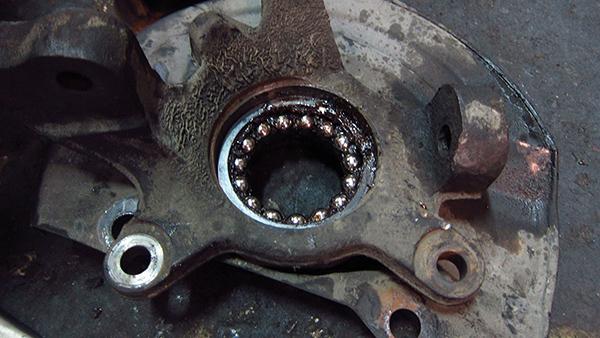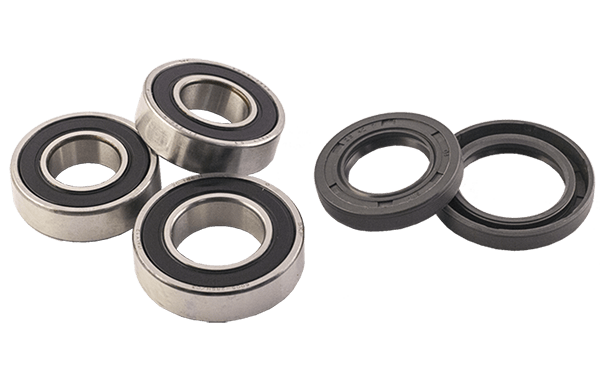How to Diagnose BMW Wheel Bearing Noise
BMW, the epitome of driving precision and performance, is known for its smooth and quiet ride. However, when you hear that telltale BMW Wheel Bearing Noise, it can be a disconcerting experience. In this journey, we will delve into the world of BMW wheel bearing noise, exploring its causes, recognizing its symptoms, and understanding why addressing it is crucial for your ultimate driving experience.
At its core, BMW Wheel Bearing Noise is the audible result of wear and tear on the wheel bearing, a vital component responsible for the smooth rotation of your vehicle’s wheels. When this bearing is compromised, it can generate sounds that range from humming to grinding, disrupting the harmonious ride you expect from your BMW. The origins of BMW Wheel Bearing Noise can often be traced back to a combination of factors. These include wear and tear due to mileage, exposure to harsh driving conditions, or damage from impacts like potholes. Understanding these causes is crucial to addressing the issue effectively.
How to Diagnose BMW Wheel Bearing Noise?
When you own a sleek vehicle like a BMW, any out-of-the-ordinary noise can be a cause for concern. One such noise that many BMW owners have encountered is the BMW Wheel Bearing Noise. This specific noise can indicate a potential problem with your vehicle’s wheel bearing. But how do you determine if it’s truly the BMW Bearing Noise or something else? Let’s dive into the steps to diagnose this issue.
- Visual Inspection: Before diving deep into technical assessments, start with a simple visual inspection. Sometimes, the signs of a failing wheel bearing are visible to the naked eye. Look for any uneven tire wear or if the wheel appears to be tilting. While These are not exclusive BMW Wheel Bearing Symptoms, they can often accompany BMW Bad Wheel Bearing Symptoms.
- Test Drive: The most telling sign of a problem is often heard during a test drive. As you drive your BMW, pay close attention to the noise coming from your wheels. BMW Front Wheel Bearing Noise is typically a grinding or humming sound that increases in intensity as the vehicle speeds up. If you hear this distinct noise, especially from the front, you’re likely dealing with BMW Bearing Noise.
- Mechanical Inspection: Sometimes, the symptoms are subtle, and a test drive might not be conclusive. In such cases, a more in-depth mechanical inspection becomes essential. Jack up the car and try moving the wheel from side to side and top to bottom. Any excessive play could indicate BMW Bad Wheel Bearing Symptoms. Also, rotating the wheel manually might help you hear any grinding noise indicative of a bad bearing.
- Using Modern Tools: In some cases, even if you suspect BMW Wheel Bearing Noise, it might be challenging to pinpoint the exact wheel causing the problem. Professional garages use stethoscope-like tools to listen closely to each bearing, helping to identify even the slightest BMW Bearing Noise. If you’re unsure, it might be a good idea to visit a trusted mechanic to ensure your BMW is in top shape.

Common Causes of BMW Wheel Bearing Noise
There’s an unmistakable dread that settles in when you hear the BMW Wheel Bearing Noise while cruising in your cherished vehicle. That distinct hum or grinding sound is often a telltale sign that something’s amiss. So, what could be the culprits behind this unsettling BMW Bearing Noise? Let’s explore the common causes.
- Worn or Damaged Ball Bearings: At the heart of your wheel bearing system are ball bearings, tiny yet crucial. Over time, with the regular wear and tear of driving, these ball bearings can wear out or get damaged. When this happens, the once smooth operation becomes noisy, leading to the characteristic BMW Wheel Bearing Symptoms. It’s like a symphony where one instrument is out of tune, affecting the entire performance.
- Worn or Damaged Inner Race: The inner race is an integral component of the wheel bearing system. It’s the track on which the ball bearings move. Imagine it as a racetrack: if the track itself is damaged or worn out, the cars (or ball bearings) won’t run smoothly. This wear can manifest as the notorious BMW Bad Wheel Bearing Symptoms, especially a grinding noise when you turn.
- Worn or Damaged Outer Race: Just as with the inner race, the outer race plays a pivotal role. If it becomes worn or damaged, it disrupts the harmony of the wheel’s rotation. This can be a significant contributor to the BMW Front Wheel Bearing Noise that many BMW owners dread.
- Worn or Damaged Seals: Seals are the unsung heroes of the wheel-bearing system. They keep out contaminants and ensure that the lubrication remains inside. However, when these seals wear out or get damaged, it can lead to BMW Wheel Bearing Noise. Think of it as a dam with a small crack, over time, that crack can cause a flood of problems.
- Lack of Lubrication: Lubrication is to wheel bearings what water is to plants. Without adequate lubrication, the bearing components create friction, leading to increased heat and, you guessed it, BMW Bearing Noise—similar to BMW differential noise that arises when gears run dry or under strain. Regular maintenance checks can ensure that your bearings are always well-lubricated and singing in harmony.
- Contamination: Dirt, water, and other contaminants can be disastrous for wheel bearings. Contamination not only accelerates wear but can also directly cause BMW Wheel Bearing Symptoms. It’s like adding sand to a finely tuned machine, the results are never pleasant.
How to Fix BMW Wheel Bearing Noise?
The distinct sound of BMW Wheel Bearing Noise is enough to make any BMW enthusiast’s heart sink. But fret not! While the BMW Bearing Noise is a clear sign of trouble, it’s also a call to action. This can be discerned through the characteristic grinding or humming sound, which is especially prominent when you’re cruising or turning. If you’ve been experiencing BMW Wheel Bearing Symptoms or even the more severe BMW Bad Wheel Bearing Symptoms, it’s a clear indication that action is needed. Here’s a guide on how to address and fix that irksome noise. Before diving into the solution, it’s vital to ensure that the noise you’re hearing is indeed the BMW Wheel Bearing Noise.
Replace the Wheel Bearing Assembly
While there might be various contributors to the BMW Front Wheel Bearing Noise, the most effective solution is often to replace the wheel bearing assembly.
- Why Replacement?
Wheel bearings are designed for longevity, but they aren’t immortal. Over time, wear and tear can take their toll, leading to BMW Bearing Noise. Instead of attempting patchwork fixes, replacing the entire assembly ensures that every component is in pristine condition. - Professional Help is Advised:
While there are numerous DIY guides out there, the complexity and precision required for a BMW make it advisable to seek professional help. An expert will not only replace the bearing but will also inspect the surrounding components for any signs of wear or damage. - Post-Replacement Care:
Once you’ve addressed the BMW Wheel Bearing Noise by replacing the assembly, it’s essential to ensure regular maintenance checks. Proper lubrication and ensuring that the seals are intact can significantly prolong the lifespan of your new wheel bearing assembly.
How to Prevent BMW Wheel Bearing Noise?
The serene pleasure of driving a BMW can be disrupted by the unsettling BMW Wheel Bearing Noise. Before this sound escalates to BMW Bad Wheel Bearing Symptoms, it’s wise to adopt preventive measures. After all, as the saying goes, “prevention is better than cure.” Here’s how you can ensure your BMW sings its harmonious engine tune without the interruption of bearing noise.
Regular Maintenance
The cornerstone of preventing BMW Bearing Noise lies in regular maintenance.
- Timely Checks: Ensure you have scheduled check-ups for your BMW. During these check-ups, professionals can spot early BMW Wheel Bearing Symptoms, addressing them before they intensify.
- Lubrication: Regular lubrication of the wheel bearing reduces friction, ensuring smooth wheel rotation and preventing the onset of BMW Front Wheel Bearing Noise.
- Seal Inspections: A routine inspection of the seals can prevent contaminants from entering the bearing, another potential cause of BMW Wheel Bearing Noise.
Avoid Driving on Rough Roads
While your BMW is designed to handle various terrains, consistently driving on rough or potholed roads can be a precursor to BMW Bearing Noise.
- Impact of Rough Roads: Bumpy roads can exert undue stress on the wheel bearings, leading to wear and potential damage over time.
- Choose Your Path: Whenever possible, opt for smoother roads or highways. This not only ensures a comfortable drive but also prolongs the life of your wheel bearings, keeping that dreaded BMW Front Wheel Bearing Noise at bay.
Avoid Overloading the Vehicle
Your BMW is a marvel of engineering, but even marvels have their limits.
- Weight Limits: Consistently overloading your BMW, especially with heavy cargo, can strain the wheel bearings. This strain can accelerate wear and bring on BMW Wheel Bearing Symptoms sooner than expected.
- Pack Smart: When traveling or transporting goods, ensure you’re within the recommended weight limits of your BMW. A balanced vehicle ensures balanced wear, reducing the chances of encountering BMW Bearing Noise.
BMW Bad Wheel Bearing Symptoms
The elegance of a BMW is unmatched, but like all machines, it can sometimes exhibit warning signs. Among these, BMW Wheel Bearing Noise stands out prominently. It’s essential to distinguish between regular BMW Wheel Bearing Symptoms and the more critical BMW Bad Wheel Bearing Symptoms. Let’s uncover the alarming signs that signify it’s time for urgent action.
- Noise Amplifies at Higher Speeds: If you’ve noticed that the BMW Bearing Noise becomes distinctly louder as you press the accelerator and reach higher speeds, it’s a red flag. This escalation in noise intensity is a clear symptom that the wheel bearing is deteriorating and needs immediate attention.
- Enhanced Noise While Turning: Maneuvering your BMW should be a dream. However, if the BMW Front Wheel Bearing Noise becomes notably louder or more grating when you turn the wheel, it’s more than just a regular symptom. This increased noise during turns is a hallmark of BMW Bad Wheel Bearing Symptoms.
- Rough Roads Exacerbate the Noise: While rough roads can be a challenge for any vehicle if your BMW’s bearing noise becomes conspicuously louder on such terrains, it’s a sign of concern. This heightened sensitivity to road conditions underscores the severity of the bearing issue.
- The Wheel Feels Loose or Wobbly: One of the most tangible BMW Bad Wheel Bearing Symptoms is when the wheel feels unsteady. If there’s noticeable play or wobble in the wheel when you give it a shake, it’s not just a symptom, it’s an urgent call to action.
- The Wheel is Unusually Hot: Bearings, when damaged, generate excessive friction. This friction can cause the wheel to become hot to the touch after a drive. If you observe this, paired with the BMW Wheel Bearing Noise, it’s a clear indication of a bearing problem reaching a critical stage.
BMW Front Wheel Bearing Noise
The symphony of a BMW’s engine can sometimes be interrupted by an unwelcome guest: the BMW Wheel Bearing Noise. Among the various types of bearing noises, the BMW Front Wheel Bearing Noise is particularly distinctive. Let’s delve into understanding this specific noise and how it stands out.
- A Shared Set of Symptoms: While the BMW Front Wheel Bearing Noise has its unique characteristics, it’s crucial to remember that many of the general BMW Wheel Bearing Symptoms apply here as well. From humming noises that escalate with speed to vibrations in the steering wheel, the front wheel bearing is no exception to these warning signs.
- Amplified Noise During Turns: One of the defining attributes of BMW Front Wheel Bearing Noise is its prominence during turns. If you notice the BMW Bearing Noise becoming significantly louder or more grating when you steer in one direction compared to the other, it’s a clear indication of a front wheel bearing issue.
- Why the Front Wheel: The front wheels of your BMW bear the brunt of steering, braking, and often, the engine’s weight. This increased workload can sometimes lead to accelerated wear, making the BMW Front Wheel Bearing Noise more common than its rear counterpart.
- The Significance of Directional Noise: The very nature of the BMW Front Wheel Bearing Noise being more noticeable when turning the wheel in one direction is an invaluable diagnostic tool. It often pinpoints which side, the left or the right, is experiencing the bearing issue. For instance, if the noise amplifies when turning left, it often indicates an issue with the right front wheel bearing, and vice versa.
- The Urgency of Addressing the Issue: BMW’s Bad Wheel Bearing Symptoms, especially those concerning the front wheel bearing, demand immediate attention. Given the pivotal role of front wheels in both steering and bearing the vehicle’s weight, any symptoms should be a clarion call for inspection and potential intervention.
Navigating the BMW Wheel Bearing Noise
Throughout this blog, we’ve delved deep into the world of BMW Wheel Bearing Noise, demystifying its causes, symptoms, and solutions. We’ve explored:
- The various BMW Wheel Bearing Symptoms, from humming sounds to noticeable vibrations.
- The more severe BMW Bad Wheel Bearing symptoms signal an urgent need for intervention.
- The unique characteristics of BMW Front Wheel Bearing Noise and its importance in the realm of wheel bearing issues.
Tips for Preventing BMW Wheel Bearing Noise
Prevention is always better than cure. Here are some quick reminders:
- Regular Maintenance: Regular check-ups can catch early BMW Wheel Bearing Symptoms before they escalate.
- Drive Smart: Avoid consistently rough terrain and overloading your BMW to reduce undue stress on the wheel bearings.
- Stay Lubricated: Ensure that the wheel bearings are adequately lubricated to prevent unwanted friction and subsequent BMW Bearing Noise.
BMW Wheel Bearing Noise, while a concern, is not an insurmountable challenge. With knowledge, timely action, and the right resources, you can ensure your BMW remains the epitome of luxury and performance. Here’s to many more smooth, noise-free rides in your beloved BMW!


